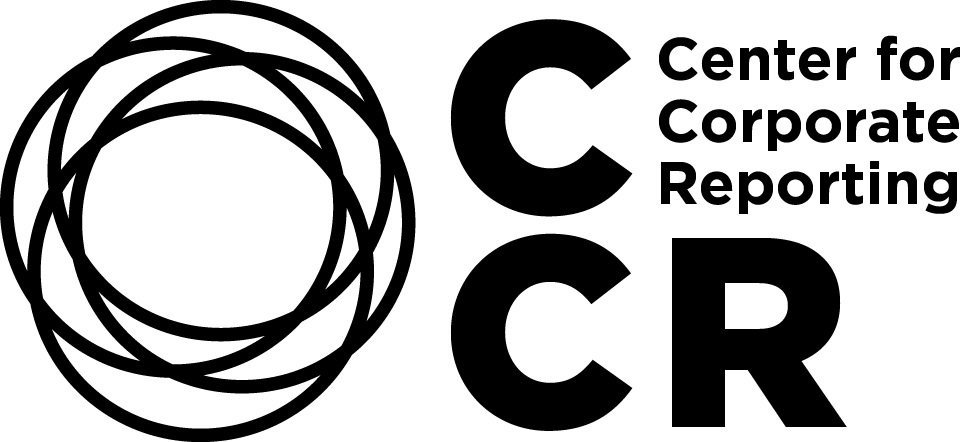Sustainability reporting marks a window of opportunity that will close soon
A lot has been written about the bureaucratic burden of sustainability reporting regulations with a focus on what companies must do to comply. We recommend not wasting too much time on detangling compliance, scope, materiality and timelines. Your company may benefit more by seeing the change in corporate reporting as a unique window of opportunity.
By Florian Hoos and Alisa Gessler
The biggest performance measurement experiment in a century
A myriad of acronyms like CSRD, ESRS, CSDDD, and more lay the basis for a new era of company reporting. Complying with the new mandatory sustainability reporting regime(s) is seen by many as an exhausting task which requires time, money and other resources. But it can also be seen as a window of opportunity for a real change management process. This is comparable to a human being with a recently diagnosed chronic disease: you can ignore it and complain about it, while living off painkillers, or you can change your life and potentially become more resilient than ever before.
Compliance isn’t a good strategy
Applying the resilience metaphor to the health of companies, change means redefining strategy, KPIs, the C-suite dashboard, incentives and narratives. A couple of years down the road, everyone will have complied with the new standards. So, there is a choice to be made: whether your company focuses on getting the compliance job done, or whether you use, for instance, the obligation of double-materiality assessments as a serious first step towards implementing sustainability into strategy, thereby applying a long-term resilience and competitive advantage perspective. This requires going all the way from matching materiality assessments with the company purpose, to new KPIs linked to serious incentive plans for top executives so that they see unmet sustainability goals in their wallets. This is a very different process than letting your compliance department together with lawyers and external consulting firms make your sustainability reporting compliant and external audit safe.
Schneider Electric has taught us over the last 20 years that going down the resilience and competitive advantage path is a long-term game that has nothing to do with short-term compliance. Embedding sustainability into strategy in a way that there is a clear connection to the financial numbers is giving Schneider Electric a true competitive advantage, superior stock market price performance, and worldwide recognition for its sustainability leadership.
Is it likely that you can explore new opportunities with old governance?
When companies enter into the era of mandatory sustainability reporting, they have to ask whether the current organization is ready to tackle new challenges. Until recently, accounting and reporting decisions were the responsibility of the CFO. The rise in the importance of sustainability reporting made some companies create new roles like that of the Chief Sustainability Officer (CSO), serving as an internal and external signal that the company is taking sustainability seriously. Many bigger companies used the new position to create new teams and hired external people with decades of sustainability experience. But new governance structures also bring political gaming and competency fights among the new and the old board members, sometimes leading to regress, not progress. In addition, smaller firms often lack the resources and ability to hire more people to tackle sustainability opportunities.
While there does not seem to be a one-size-fits-all solution to the new governance challenge, both new positions and new sustainability competencies are among the most crucial variables that companies must consider. Vaude, the European Patagonia, with its CEO Antje von Dewitz, and Ragn-Sells, the Swedish circular economy champion, with its Chief Sustainability Officer Pär Larshans, are two examples of SMEs where sustainability champions drove change. Both changed the governance and invested in further training, collaboration, and internal reorganization, but they did it from different positions in the organizational chart, and with different strategies adapted to their industry and size. So, the need for new governance, people, and knowledge is evident, but the “how” should be a customized path to success.
How can you identify forward-looking and scenario-based sweet spots?
What companies with effective sustainability-focused governance have in common is that they downplay the role of KPIs that mainly look at past performance. Instead of looking at last year’s emission intensity reduction or the number of human rights violation complaints, they apply a forward-looking and scenario- based approach. To some extent, sustainability reporting requirements will oblige companies to apply transition plan logics that make 25-year emission forecasts a mandatory exercise. However, to really use the new sustainability focus and seize business opportunities based on social or environmental value creation, companies need to align their strategy closer with frameworks like the planetary boundaries (for the “E”) or the doughnut economy (for the “S”). Early on, Lombard Odier focused on investment strategies that take plastic waste reduction prominently into account, and those companies that took human rights seriously in the past will be less exposed to risks related to the CSDDD. In both cases, a match has been found between what is good for the planet and society is good for financial performance.
So, instead of using costly painkillers to decrease the compliance pain of mandatory sustainability reporting, companies should take adaptive action in strategy, governance, and make forward-looking investments.
Further Information
Schneider Electric - Financial and Sustainable Development Report 2023
Lombard Odier - Eradicating Plastic Waste
Florian Hoos
is Professor of Sustainability and ESG Accounting at IMD and co-managing director of the Enterprise for Society (E4S) Center – a joint venture between IMD, EPFL and the University of Lausanne.
Alisa Gessler
is a scientific collaborator at E4S. She focuses in particular on topics related to sustainable finance regulation, sustainability reporting and well-being.




